8 start with G start with G
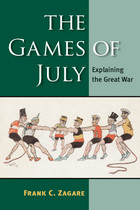
"Frank C. Zagare combines a deep command of historical scholarship and the sophisticated skills of an applied game theorist to develop and test a theory of why deterrence failed, catastrophically, in July 1914. . . . Zagare concludes with sage advice on how to avoid even more cataclysmic breakdowns in a nuclear world."
---Steven J. Brams, New York University
"Zagare's deft study of the origins of the First World War using his perfect deterrence theory uncovers new insights into that signal event and shows the value of formal theory applied to historical events. A must-read for those interested in security studies."
---James D. Morrow, University of Michigan
"Through an exemplary combination of formal theory, careful qualitative analysis, and lucid prose, The Games of July delivers important and interesting answers to key questions concerning the international political causes of World War I. Its well-formed narratives and its sustained engagement with leading works in IR and diplomatic history . . . make it a rewarding read for security scholars in general and a useful teaching tool for international security courses."
---Timothy W. Crawford, Boston College
Taking advantage of recent advances in game theory and the latest historiography, Frank C. Zagare offers a new, provocative interpretation of the events that led to the outbreak of World War I. He analyzes key events from Bismarck's surprising decision in 1879 to enter into a strategic alliance with Austria-Hungary to the escalation that culminated in a full-scale global war. Zagare concludes that, while the war was most certainly unintended, it was in no sense accidental or inevitable.
The Games of July serves not only as an analytical narrative but also as a work of theoretical assessment. Standard realist and liberal explanations of the Great War are evaluated along with a collection of game-theoretic models known as perfect deterrence theory.
Frank C. Zagare is UB Distinguished Professor of Political Science at the State University of New York at Buffalo.
Cover illustration: Satirical Italian postcard from World War I. Used with permission from The University of North Carolina at Chapel Hill Libraries.
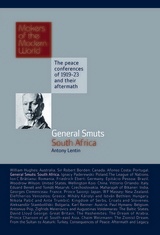

The generation of 1914 holds a special place in memory, affection, and myth. In this irresistible and moving book, Robert Wohl rescues it from the shadows of legend and brings it fully into the realm of understanding. He tells the story of the young men--the middle class elite of five European countries, France, Germany, England, Spain, and Italy, to recreate the generational consciousness that united them as well as the unique national experience that made them different.
These were men born at the end of the nineteenth century when the world of reason was disintegrating into a world of irrationality. They were destined to rule but their lives were interrupted by the greatest of wars, leaving them searching for identity and historical continuity. Wohl recaptures this search through novels, poems, autobiographies, memoirs, sociological treatises, philosophical essays, university lectures, political speeches, conversations when recorded, letters, personal notebooks, and newspaper articles. His book is a brilliant study of European mentalities, both collective and individual.
Probing behind ideas to find the experience that inspired them, Wohl illuminates in unexpected ways the origins of World War I and its impact on its participants. His exploration of the consciousness of generational unity and the power of the generational bond enables him to place in a novel context the spread of pessimism and despair, the waning of liberal and humanitarian values, the rise of Communist and Fascist movements, and the sudden eruption of violence in Europe's progressive countries between the two world wars.
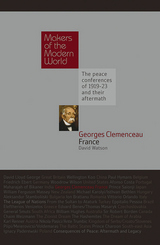
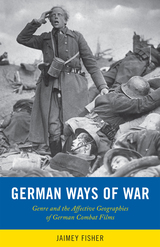

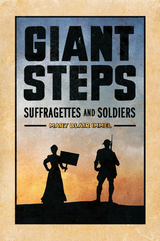

Instead of a comprehensive history of the battlefield, this book captures the homefront experience: the political debates over war policy, the worry over loved ones fighting overseas, the countless everyday sacrifices, and the impact of a wartime hysteria that drove dissent underground. It also includes the voices of soldiers from Wisconsin’s famed 32nd Division, through extensively quoted letters and newspaper accounts. Immerse yourself in the Wisconsin experience during World War I—a conflict that demonstrated America’s great capacity for sacrifice and generosity, but also for prejudice, intolerance, and injustice.
READERS
Browse our collection.
PUBLISHERS
See BiblioVault's publisher services.
STUDENT SERVICES
Files for college accessibility offices.
UChicago Accessibility Resources
home | accessibility | search | about | contact us
BiblioVault ® 2001 - 2024
The University of Chicago Press









